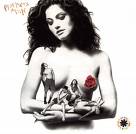
The genre that Kerry and I choose is the mockumentary - and it's what we are going to do our wiki chapter on. We have decided to focus our wiki chapter on recent movie and television comedic mockumentaries. Christopher Guest has made a series of mockumentary movies that have been quite popular, including A Mighty Wind, Best in Show, and Waiting for Guffman a. He was also in my favorite mockumentary, Rob Riener's This is Spinal Tap. Kerry is BBC's The Office freak and she also is into Curb Your Enthusiasm. Both are great examples of mockumentaries done on telelvision.
Most mockumentaries are meant to depict satire or parady and are unscripted. They typically depict lovable losers or people who take themselves too seriously. The story lines typically depict a character who is in too deep or thinks too much of himself, gets into a pickle, and ultimately resumes life - sometimes learning nothing from the lesson. Larry David of Curb Your Enthusiam makes the same mistakes over and over - it's just Larry. However, a characteristic of the mockumentary is that even though the main characters may be annoying or even pathetic, the audience sees them as human and has sympathy...even empathy for them. In these characters, we all see ourselves and our foibles.


